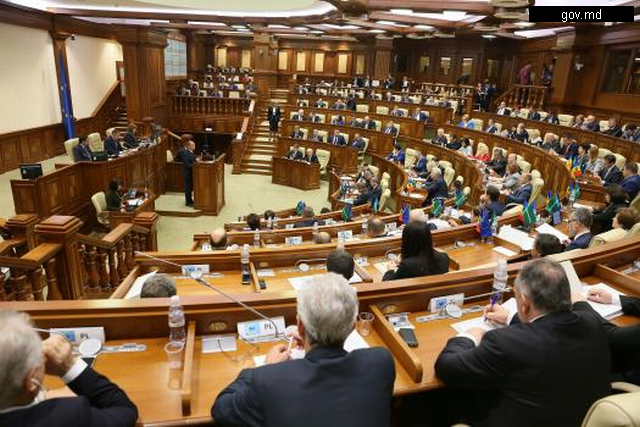The political crisis in Chisinau
A look at the political situation in the Republic of Moldova following the collapse of the country's government.

Bogdan Matei, 30.10.2015, 15:12
As expected, the no-confidence motion filed by the leftist pro-Russian
opposition in Moldova resulted in the demise of the country’s pro-European
government led by Valeriu Strelet and made up of three parties:
Liberal-Democratic Party, the Democratic Party and the Liberal Party. 65 of
Parliament’s 101 MPs voted in favour of the motion. The Socialists and the
Communists in opposition who initiated the motion held only 44 seats, but the
Democrats also voted in favour, despite being part of the ruling coalition.
Accused of incompetence and corruption, the Prime Minister said the
motion was an attempt by the left-wing opposition to destabilise the country
and sidetrack it from its path to European accession. His arguments, however,
failed even to convince his coalition partners, resulting in the collapse of
the government, Moldova’s third in less than a year.
The previous two cabinets led by Iurie Leanca and Chiril Gaburici, both
of which were marked by internal tensions, marred by corruption accusations and
vehemently criticised by the opposition, the media and civil society, left
Valeriu Strelet, who came to office on the 30th of July, with a
country on the verge of chaos. After becoming the darling of the Eastern
Partnership last year and signing Association and Free Trade Agreements with
the European Union, Moldova now no longer receives financial assistance from
Brussels and no longer has any agreements with the International Monetary Fund.
The final straw as far as its foreign partners were concerned was the
mysterious disappearance last year of 1 billion dollars from the country’s
banking system. The former Liberal Prime Minister Vlad Filat was arrested over
allegations of direct involvement in this as yet unsolved case, and the entire
political class in Moldova seems to be irredeemably compromised.
In Romania, which has recently given Moldova a 150-million-euro loan,
the prolonged political crisis in Moldova is viewed with consternation and
disappointment. Soon after the government collapse in Moldova, president Klaus
Iohannis said Moldova must stay on course for Europe and that Romania would do
its best to help it attain this objective. The Romanian Foreign Ministry also
said that it was essential for Moldova to maintain its political stability
against a complex security context in Eastern Europe.
Under the Moldovan Constitution, the Strelet Cabinet now has only
administrative powers. Unless a new Government is sworn in within three months,
president Nicolae Timofti may dissolve Parliament and call for early
parliamentary elections. The parties in the now divided ruling coalition have
already expressed their willingness to talk about the formation of a new
government. However, political commentators in Moldova give them little chances
to succeed, given that the internal cohesion of the coalition and the trust
among its members have been completely damaged this week.






























